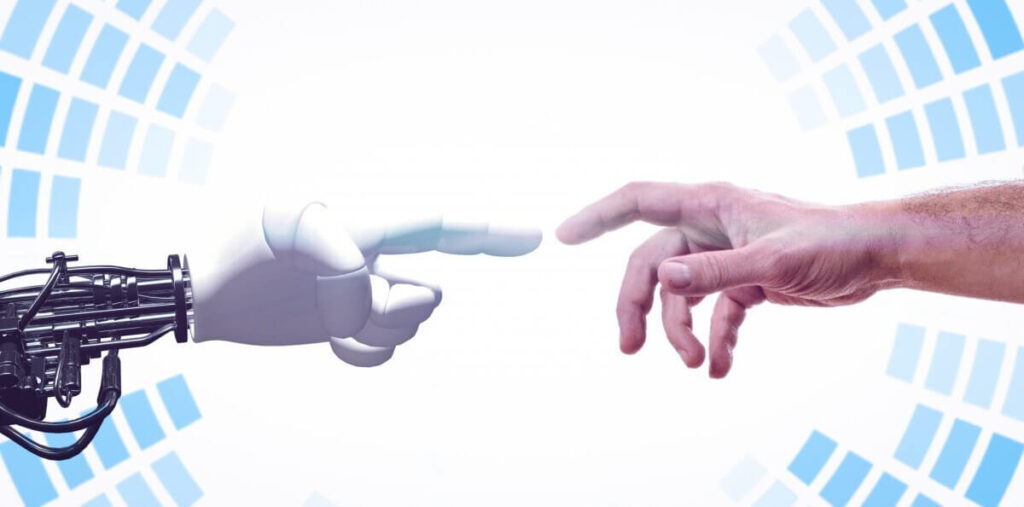
Artificial Intelligence (AI) has swiftly permeated every corner of our lives. From autonomous cars to virtual assistants, AI is no longer a futuristic concept; it’s a present reality. As AI technology advances, the demand for AI professionals has surged. However, the hiring process in this field is not immune to ethical dilemmas. In this article, we delve deep into the role of AI ethics in hiring AI professionals, exploring the challenges, solutions, and the impact on our future workforce.
Why is Ethical Hiring in AI Crucial?
AI, with its ability to analyze vast datasets and make autonomous decisions, holds immense power. But with great power comes great responsibility. The AI systems we create are only as good as the data they are trained on and the people who design them. Ethical hiring in AI becomes paramount for several reasons:
- Bias Mitigation: AI algorithms can inherit biases present in their training data. Hiring individuals with a strong ethical foundation can help identify and rectify these biases.
- Algorithmic Transparency: Ethical AI professionals are more likely to prioritize transparency in AI systems, making it easier to understand how decisions are made.
- User Trust: Ethical AI practices foster trust among users and stakeholders. Knowing that AI professionals adhere to ethical standards can enhance public confidence in AI technology.
- Legal Compliance: Many countries are introducing regulations to ensure ethical AI practices. Hiring ethical AI professionals ensures legal compliance.
- Societal Impact: AI technologies have far-reaching societal implications. Ethical hiring ensures that those who shape AI are mindful of these consequences.
Challenges in Ethical Hiring for AI Roles
While the need for ethical hiring in AI is clear, it’s not without its challenges:
- Subjectivity: Assessing ethical values can be subjective, making it challenging to evaluate candidates objectively.
- Limited Expertise: The field of AI ethics is relatively new, and finding professionals with a well-established track record can be difficult.
- Diversity: Ensuring diversity in AI teams is essential to prevent biases. Ethical hiring should also consider diversity aspects.
- Evolving Standards: Ethical AI standards are constantly evolving. Keeping up with the latest developments can be demanding.
- Ethical Dilemmas: AI professionals often encounter ethical dilemmas in their work. Ethical hiring should focus on how candidates approach and resolve these dilemmas.
Strategies for Ethical Hiring in AI

The ethical hiring process for AI professionals requires a strategic approach:
- Define Ethical Guidelines
Clearly define your organization’s ethical guidelines for AI. This could include commitments to fairness, transparency, accountability, and bias mitigation. Create a set of ethical principles that align with your company’s values and the broader ethical landscape in the AI field.
- Assess Ethical Competence
Develop assessment methods that evaluate a candidate’s ethical competence. Ask situational questions to gauge how they would handle ethical dilemmas in AI development. For example:
- “Imagine you discover that an AI algorithm you developed is consistently disadvantaging a certain demographic group. What steps would you take to address this issue?”
- “How would you handle a situation where the business interests conflict with ethical considerations in AI development?”
- Promote Diversity
Actively promote diversity in your AI team. Diverse teams are more likely to identify and address biases effectively. Implement diversity hiring initiatives to attract candidates from various backgrounds and experiences, fostering a rich tapestry of perspectives.
- Collaborate with Ethical Experts
Collaborate with ethicists and experts in AI ethics during the hiring process. Their insights can be invaluable in evaluating candidates. Establish partnerships with academic institutions or organizations focused on AI ethics to tap into their knowledge and resources.
- Continuous Education
Encourage AI professionals to stay updated on ethical AI developments through continuous education and training. Offer opportunities for workshops, courses, and seminars on AI ethics. Consider providing incentives for employees who actively engage in ethical AI education to cultivate a culture of lifelong learning.
The Impact of Ethical Hiring on the Future Workforce

The decisions made today in hiring AI professionals will shape the future of AI and, consequently, our workforce. Here’s what this impact might look like:
- Better AI Systems: Ethical hiring will lead to the development of AI systems that are fairer, more transparent, and less biased. Ethical AI professionals will be committed to addressing bias and ensuring fairness in algorithms, contributing to more equitable technology.
- Increased Trust: As AI becomes more integrated into our lives, the trust of the public and businesses in these systems will be crucial. Ethical hiring builds and maintains this trust by demonstrating a commitment to ethical principles, reassuring users and stakeholders.
- Global Compliance: Ethical hiring aligns organizations with emerging global regulations on AI ethics, reducing the risk of legal issues and ensuring that AI development meets international ethical standards.
- Innovation: Ethical AI professionals can drive innovation by pushing the boundaries of what AI can achieve while maintaining ethical boundaries. They can develop creative solutions that benefit society without compromising on ethics, fostering responsible innovation.
- Ethical Leadership: Ethical hiring also cultivates a culture of ethical leadership within organizations. AI professionals hired for their ethical competence can serve as role models for others in the industry, promoting responsible AI practices and inspiring future generations of ethical AI developers.
In the ever-evolving landscape of AI technology, ethical hiring for AI professionals is not just a choice; it’s a necessity. It is the foundation upon which responsible AI development and deployment rest. By setting clear ethical guidelines, assessing candidates for ethical competence, promoting diversity, collaborating with experts, and investing in continuous education, organizations can pave the way for a brighter, more ethical AI-powered future.
The impact of these decisions will resonate for generations to come, shaping the role of AI in our society. So, when it comes to hiring AI professionals, remember, ethics isn’t just a checkbox; it’s the compass that guides us toward a better tomorrow. As AI continues to evolve, so too must our commitment to ethical AI practices, ensuring that this transformative technology benefits all of humanity and stands as a beacon of responsible innovation.
FAQ: The Role of AI Ethics in Hiring AI Professionals
In this FAQ, we address common questions related to the role of AI ethics in hiring AI professionals. Whether you’re an employer looking to build an ethical AI team or an AI enthusiast curious about ethical considerations, we’ve got you covered.
- Why is ethical hiring important in the field of AI?
Ethical hiring in AI is essential to ensure that AI technologies are developed and deployed responsibly. It helps mitigate biases, ensures transparency, and fosters user trust. Additionally, it aligns organizations with emerging legal regulations related to AI ethics.
- What are the key challenges in ethical hiring for AI roles?
The challenges include subjectivity in assessing ethical values, finding professionals with expertise in AI ethics, promoting diversity, and keeping up with evolving ethical standards.
- How can I define ethical guidelines for hiring AI professionals?
Start by outlining your organization’s commitment to fairness, transparency, accountability, and bias mitigation in AI development. Consult with ethicists and experts in AI ethics to create comprehensive guidelines.
- How can I assess a candidate’s ethical competence during the hiring process?
You can assess ethical competence by asking situational questions that require candidates to demonstrate how they would handle ethical dilemmas in AI development. Look for their ability to consider the broader ethical implications of their work.
- Why is diversity important in AI teams from an ethical perspective?
Diverse AI teams are more likely to identify and address biases effectively, as they bring a wider range of perspectives to the table. This helps create AI systems that are fair and inclusive.
- What is the impact of ethical hiring on the future workforce and AI technology?
Ethical hiring will lead to the development of AI systems that are fairer, more transparent, and less biased. It will also increase trust in AI, ensure global compliance with AI ethics regulations, and drive innovation while maintaining ethical boundaries.
- How can organizations stay updated on the latest developments in AI ethics?
Encourage AI professionals to engage in continuous education and training related to AI ethics. Additionally, collaborate with ethicists and experts in the field to stay informed about evolving ethical standards.
- Is ethical hiring in AI a one-time effort, or is it an ongoing process?
Ethical hiring should be an ongoing process. As AI ethics standards evolve and new challenges emerge, organizations must adapt their hiring practices to ensure they continue to hire professionals who align with their ethical guidelines.
- Can ethical hiring practices be integrated into existing recruitment processes?
Yes, ethical hiring practices can be integrated into existing recruitment processes. This can include adding ethical competency assessments and collaborating with AI ethics experts during candidate evaluations.
- What role do AI professionals play in shaping the ethical landscape of AI?
AI professionals have a significant role in shaping the ethical landscape of AI. They are responsible for implementing ethical guidelines, identifying and mitigating biases, and advocating for responsible AI development within their organizations.
If you have more specific questions or need further information on the role of AI ethics in hiring AI professionals, feel free to reach out to us. Ethical hiring is not just a trend; it’s a crucial step toward a responsible AI-powered future.